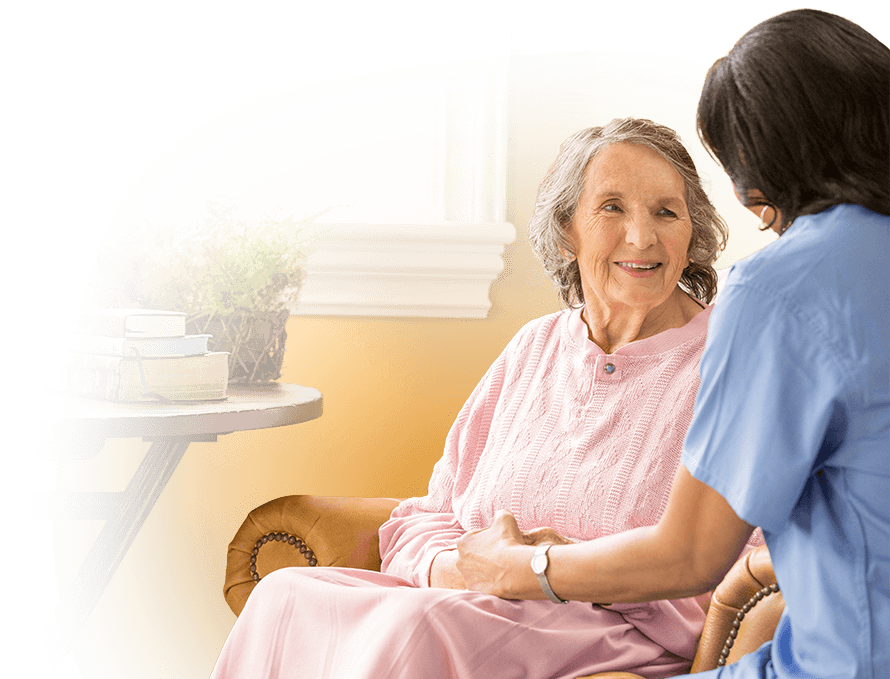What is Hospice Care at Home?
Hospice care at home provides clients with advanced illnesses the opportunity to receive comprehensive care and support in the comfort of their own homes,
You can schedule a consultation with a care provider now.
Please submit this form below and we will chat shortly!
For a free e-book complete the form below
Learn about the Exciting Opportunities with Always Best Care!

Hospice care at home provides clients with advanced illnesses the opportunity to receive comprehensive care and support in the comfort of their own homes,
Hospice care offers a wide range of benefits for both clients and their families, emphasizing comfort,
dignity, and emotional support during the challenging, final stages of a terminal condition.
Here are some of the key benefits:
Accessing hospice care typically involves several key steps to ensure that the care provided meets the specific needs and preferences of the client and their family.
Here’s how you can go about it:
1. Start the Conversation
Begin discussions about hospice care early with your elderly loved one. This conversation should address their needs, preferences, and goals of care as they approach the end of life.
2. Receive Recommendations
Ask your elderly loved one’s doctor, healthcare providers, or local community groups for recommendations on hospice care providers.
You can also seek advice from friends or family members who have had experience with hospice care.
3. Visit and Evaluate Providers
Once you have a list of potential providers, visit their facility, or have detailed conversations over the phone or via virtual meetings.
Assess their services, the competence of their staff, and their ability to meet specific needs and preferences.
Check for accreditation and reviews to gauge their reputation and quality of service.
4. Undergo the Admission Process
After selecting a hospice provider that best fits your elderly loved one’s needs, they’ll go through the admission process.
This usually includes meeting with a hospice representative who will review the patient’s medical history, discuss the personalized care plan, and explain what services will be provided.
5. Obtain Hospice Care Services
Once a hospice admits your elderly loved one, they will begin receiving care.
This includes regular visits from hospice care team members, such as nurses, doctors, social workers, and spiritual advisors, depending on the personalized care plan.
Hospice care will focus on comfort, dignity, and support for both your elderly patient and family.
Hospice doesn’t cover 24-hour care at home, as it doesn’t involve active treatment. They assist with daily needs, but this does not constitute “hospice care” in the traditional sense.
For example, while hospice workers may administer medication, manage pain, or provide emotional support, they won’t stay around-the-clock to perform continuous caregiving tasks like meal preparation or personal hygiene assistance.
You should consider hospice care when your elderly loved one is experiencing a terminal illness and their doctor believes they have six months or less to live.
Hospice care is also suitable when the focus shifts from curative care to comfort care.
End-of-life care provides emotional, physical, spiritual, and social support during the days leading up to an individual’s passing.
It’s not about trying to cure the illness but instead, it focuses on comfort — easing pain and making sure the quality of life is as good as it can be for as long as possible.

Different professionals can provide end-of-life care, depending on where the elderly patient is living.
For example, a general practitioner may oversee medical treatment and coordinate care plans, while community nurses might visit regularly to manage symptoms and provide medical support at home.
Healthcare assistants can help with daily activities and comfort measures, and staff in hospitals or care homes can offer specialized care and 24/7 support tailored to the needs of someone nearing the end of life.
End-of-life care should begin as soon as your elderly loved one needs it.
While some clients may be nearing death within hours or days, others might receive this care for several months.
End-of-life care can last from a few days to several months, or even more than a year.
You should consider end-of-life care when your elderly loved one is approaching the final stages of a terminal illness.
You should also contemplate end-of-life care when your elderly loved one is experiencing a significant decline in their ability to perform daily activities due to a serious, life-limiting condition.
Key indicators that it’s time for end-of-life care include frequent hospitalizations, severe pain and distress, and a doctor’s prognosis of limited life expectancy.
Introducing the topic of end-of-life care to your elderly loved one can be challenging but it’s key to make sure that you honor their wishes.
Here’s a step-by-step guide on how to talk to your elderly loved one about end-of-life care:
Get professional care delivered to you and your loved ones

